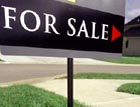Choosing Your Agent Carefully
Make sure you and your estate agent mesh, advises Roger Field


The recent Whistleblower programme on BBC1 exposed a number of deeply suspect practices by various estate agents. It has put the profession under the spotlight. No wonder. For most of us, our homes are our biggest financial investment, and we need to be able to trust those who sell them on our behalf. When choosing an agency, we are probably most influenced by their valuation and their fees. There is little merit in engaging 'honest, but dim' if they are going to undersell your property. Nor do we want to pay an extra 0.5% to 1% in fees (plus VAT) just because they have swanky offices to maintain. It is worth paying the extra amount, however, to have an honest and experienced agent who will best market the property to maximise the price, as well as know how to facilitate the deal there- after. As James Laing, partner at Strutt & Parker, says: 'There is more to selling a property than simply accepting the highest offer. Getting the bid is often only half the job.' Vendors normally get valuations from two to three agencies. Valuations will usually be within 5% of each other, but one agent might spot something good, or bad, that the others have missed. Choose an agent you like. House sales can be traumatic and it is important to get on with one another. But can you trust them? The best way is to use an agency affiliated with the Royal Institution of Chartered Surveyors (RICS). RICS publishes the 'Blue Book', the bible of professional standards. It lays down what is legal and what is good practice. Agents who breach the rules will also have something to lose: their jobs. If you are unhappy with the behaviour of your agent, an RICS-affiliated agency should offer an internal complaints procedure. If that fails, then complain to the disciplinary committee of RICS. They 'take no prisoners,' says Mr Laing.
Exquisite houses, the beauty of Nature, and how to get the most from your life, straight to your inbox.
Country Life is unlike any other magazine: the only glossy weekly on the newsstand and the only magazine that has been guest-edited by His Majesty The King not once, but twice. It is a celebration of modern rural life and all its diverse joys and pleasures — that was first published in Queen Victoria's Diamond Jubilee year. Our eclectic mixture of witty and informative content — from the most up-to-date property news and commentary and a coveted glimpse inside some of the UK's best houses and gardens, to gardening, the arts and interior design, written by experts in their field — still cannot be found in print or online, anywhere else.

